
Kód: 08857184
Jean-Luc Godard
Autor Jeremy Mark Robinson
JEAN-LUC GODARD There's no one else quite like Jean-Luc Godard. You could take a few frames from one of his films and know they were by the maestro and nobody else. Where the flood of movies globally no ... celý popis
- Jazyk:
 Angličtina
Angličtina - Väzba: Pevná
- Počet strán: 492
Nakladateľ: Crescent Moon Publishing, 2008
- Viac informácií o knihe

Mohlo by sa vám tiež páčiť
-

true secret history of the lives and reigns of all the kings and queens of England, from King William the first, called, the Conquerour. To which is p
33.16 € -

Beyond Judgment
28.55 € -
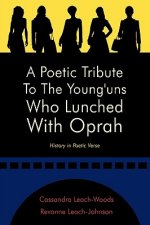
Poetic Tribute To The Young'uns Who Lunched With Oprah
29.78 € -

Journeys from the Heart
32.24 € -

Safari Match Me If You Can, 1 Blu-ray
16.78 €
Darčekový poukaz: Radosť zaručená
- Darujte poukaz v ľubovoľnej hodnote, a my sa postaráme o zvyšok.
- Poukaz sa vzťahuje na všetky produkty v našej ponuke.
- Elektronický poukaz si vytlačíte z e-mailu a môžete ho ihneď darovať.
- Platnosť poukazu je 12 mesiacov od dátumu vystavenia.
Viac informácií o knihe Jean-Luc Godard
Nákupom získate 140 bodov
 Anotácia knihy
Anotácia knihy
JEAN-LUC GODARD There's no one else quite like Jean-Luc Godard. You could take a few frames from one of his films and know they were by the maestro and nobody else. Where the flood of movies globally now runs into many thousands, Godard's works stand out as original, acerbic, romantic, ironic, humorous and explorative. EXTRACT FROM CHAPTER 2: "GODARD BIOGRAPHY" With Ŕ Bout du Souffle, Godard produced one of the first, great French New Wave movies, starring Jean-Paul Belmondo and Jean Seberg, and written by, among others, François Truffaut. Ŕ Bout du Souffle, with its cool Parisian milieu, its filmic and film noir allusions, handheld camera, direct sound, startling editing and stylish, self-conscious performances from Belmondo and Seberg, established Godard as one of the major voices of postwar cinema, a reputation which Godard built on in subsequent early films such as Le Petit Soldat (1960), Une Femme Est Une Femme (1961), Vivre Sa Vie (1962), Le Mépris (1963), Bande ŕ Part (1964), and Une Femme Mariée (1964). In these films of the early to mid-1960s, Godard established a radical, polemical series of films as film-essays which confronted issues such as late consumer capitalism, prostitution, labour, politics, ideology, gender, marriage, music, popular culture, Hollywood and not forgetting cinema itself. In the mid-1960s, Godard's films became increasingly political - the sci-fi film Alphaville (1965), Pierrot le Fou (1965), Made in U.S.A (1966), Masculine/ Féminin (1966), 2 ou 3 Choses Que Je Sais (1966) - until, by 1967-68, the Marxist and Maoist influences permeated Godard's films: Weekend (1967), La Chinoise (1967), La Gai Savoir (1968), and One Plus One (Sympathy For the Devil, 1968). His concern was 'not to make political films, but to make films politically' (my emphasis). In the 1970s, Godard moved into video and television territory, and worked with Anne-Marie Miéville on many projects: Ici Et Ailleurs (1974), Numéro Deux (1975), Comment Ça Va (1976), Six Fois Deux/ Sur Et Sous La Communication (1976), and France/ Tour/ Détour/ Deux/ Enfants (1977-78). In the late 1970s, Godard made a 'return' to feature filmmaking, with the 'sublime trilogy', Sauve Qui Peut (a.k.a. Every Man For Himself and Slow Motion, 1979), Passion (1982), and Prénom: Carmen (1983). Easily his most controversial film, Je Vous Salue Marie (Hail Mary), appeared in 1985; it was followed by Détective (1985), made to help finance the completion of Hail Mary, King Lear (1987), which starred Peter Sellars, Burgess Meredith, Molly Ringwald, Norman Mailer and Woody Allen, Nouvelle Vague (1990), Hélas Pour Moi (1993), For Ever Mozart (1997), Éloge de l'Amour (In Praise of Love, 2000) and Notre Musique (2005). Fully illustrated. Bibliography and notes.
 Parametre knihy
Parametre knihy
Zaradenie knihy Knihy po anglicky The arts Film, TV & radio Films, cinema
56.70 €
- Celý názov: Jean-Luc Godard
- Podnázov: The Passion of Cinema / Le Passion de Cinema
- Autor: Jeremy Mark Robinson
- Jazyk:
 Angličtina
Angličtina - Väzba: Pevná
- Počet strán: 492
- EAN: 9781861712271
- ISBN: 9781861712271
- ID: 08857184
- Nakladateľ: Crescent Moon Publishing
- Hmotnosť: 866 g
- Rozmery: 242 × 165 × 35 mm
- Dátum vydania: 01. February 2008
Obľúbené z iného súdka
-

Mean Girls: The Burn Book Hardcover Ruled Journal
18.83 € -7 % -
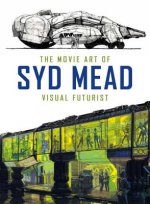
Movie Art of Syd Mead: Visual Futurist
38.17 € -23 % -

The Art and Soul of Dune
54.35 € -23 % -
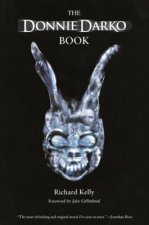
Donnie Darko Book
19.23 € -6 % -
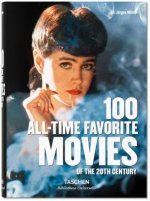
100 All-Time Favorite Movies of the 20th Century
20.46 € -10 % -

The Art of Princess Mononoke
31.31 € -13 % -

Art of How to Train Your Dragon 2
34.79 € -21 % -

The Art of Tangled
30.60 € -19 % -
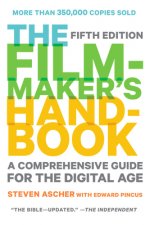
Filmmaker's Handbook, The (fifth Edition)
34.38 € -16 % -
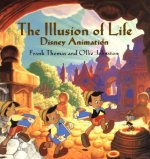
The Illusion of Life : Disney Animation
59.46 € -2 % -

Interstellar
24.25 € -15 % -
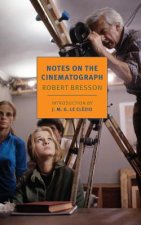
Notes On The Cinematograph
13.40 € -23 % -
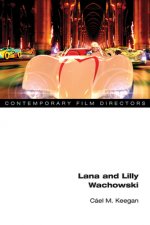
Lana and Lilly Wachowski
26.09 € -10 % -

Ghostbusters: Proton Pack and Wand
12.58 € -9 % -

The Animator's Survival Kit
37.66 € -2 % -

Animator's Survival Kit
43.60 € -23 % -

Jurassic Park
51.28 € -9 % -

Alien: The Archive - The Ultimate Guide to the Classic Movies
38.17 € -23 % -

Lighting for Cinematography
32.34 € -15 % -
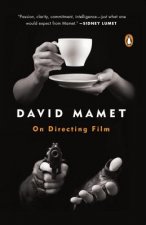
On Directing Film
15.45 € -16 % -

Art of Mad Max: Fury Road
30.90 € -13 % -

Story
30.39 € -14 % -

The Celestine Prophecy
12.27 € -23 % -

The Grand Budapest Hotel
14.42 € -23 % -

Jurassic World: The Ultimate Visual History
48.31 € -22 % -

Art of Inside Out
25.89 € -19 % -
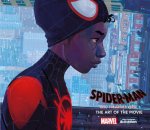
Spiderman Into the Spider-Verse
37.35 € -19 % -
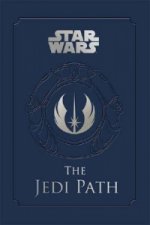
Star Wars - the Jedi Path
18.72 € -23 % -

Alien: The Blueprints
29.68 € -22 % -

Star Trek: Light-Up Starship Enterprise
12.58 € -9 % -
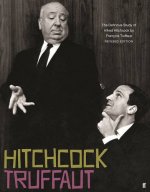
Hitchcock
20.77 € -19 % -

Character Animation Crash Course!
36.84 € -
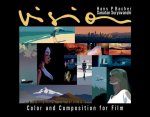
Vision
34.69 € -

Archive of Magic: the Film Wizardry of Fantastic Beasts: The Crimes of Grindelwald
36.13 € -15 % -
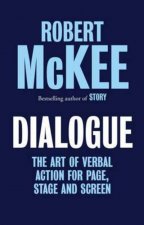
Dialogue
30.29 € -15 % -
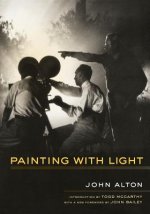
Painting With Light
35.41 € -2 % -

Princess Mononoke: The First Story
29.27 € -19 % -

The Anime Art of Hayao Miyazaki
29.37 € -
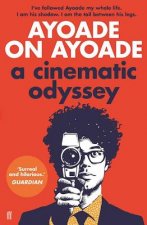
Ayoade on Ayoade
12.27 € -23 % -
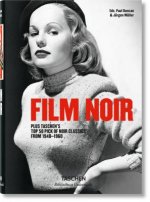
Film Noir
21.28 € -19 % -

Animator's Survival Kit
59.77 € -23 % -

Jedi Vs. Sith
26.20 € -16 % -

Crystal Lake Memories
43.19 € -13 % -
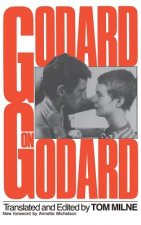
Godard On Godard
17.39 € -12 % -

Isle of Dogs
17.80 € -16 % -

Fantastic Mr. Fox
30.19 € -16 % -
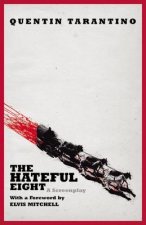
Hateful Eight
15.34 € -21 % -
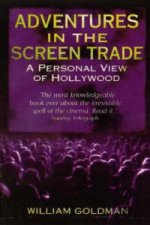
Adventures In The Screen Trade
14.42 € -23 % -

Batman v Superman: Dawn of Justice: The Art of the Film
33.26 € -22 %
Osobný odber Bratislava a 2642 dalších
Copyright ©2008-24 najlacnejsie-knihy.sk Všetky práva vyhradenéSúkromieCookies



 21 miliónov titulov
21 miliónov titulov Vrátenie do mesiaca
Vrátenie do mesiaca 02/210 210 99 (8-15.30h)
02/210 210 99 (8-15.30h)